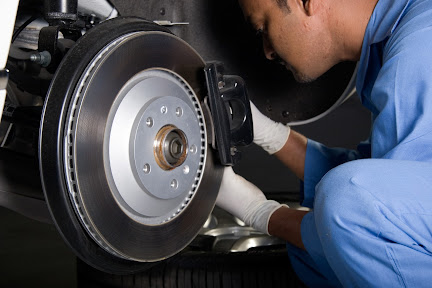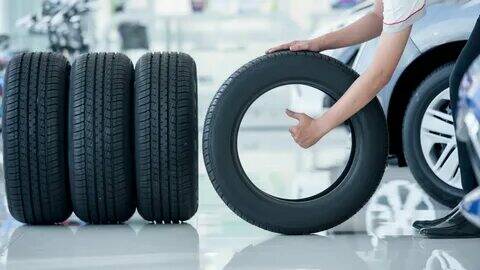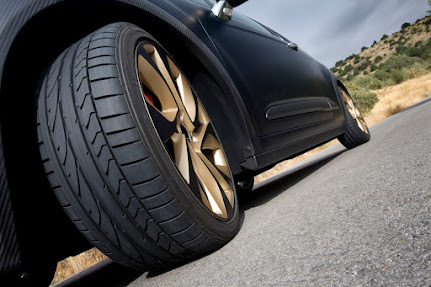When Is a Brake Inspection Necessary?
Do my brakes require an inspection? That is an excellent and crucial question. These are some more questions you ought to ask yourself. Is your automobile pulling to one side or the other when you're driving on a straight, level path? Have you ever pressed the brake pedal and heard strange noises? What about your brake pedal simply feeling spongy all around? You probably need to have your brakes tested if you said "yes" to any of these questions. You do realize that stopping promptly is essential to prevent an accident? It's also a wonderful time to Brake Repair Wincanton so they're ready for those summer road trips because summer is almost here.
Why Does Brake Wear?
The wear of the brakes will be influenced by several different circumstances. Regardless of the material used to make them, from ceramic to semi-metallic, your brakes will ultimately wear out. Your brake pads and rotors will wear down over time due to a variety of factors, including the state of the road, the materials used in the brakes, and even your own driving style. You must do appropriate brake maintenance. Postponing an inspection might put you, your passengers, and other drivers in risk or result in a more expensive repair down the line.
The Brakes Feel Spongy to Me
There are a few possible causes for your brake pedal to feel generally mushy. It can be something more severe, like a leak in your car's braking lines, or it might just be a pair of old brake pads. In this case, you ought to visit a nearby repair shop to get those brakes inspected.
Sounds Made When Braking—A Sure Sign Of Brake Inspection
When engaging your brakes, you could occasionally hear a screaming or grinding sound. This is normal for brake wear. This is most likely the most typical sign that your brakes need to be examined soon. These kinds of noises usually indicate a problem with your brake pads. Many brake pad designs are made specifically to produce noise when they are highly worn. Fortunately, this fix won't cost much. But if you choose to ignore these noises you hear every time you apply the brakes, the brake pads will eventually wear down and start to eat away at the rotors (discs). You may literally avoid a future expensive repair if you maintain your brake pads properly.
Feel Vibration while braking
Should you have ever needed to perform an emergency stop in an automobile equipped with antilock brakes, you are probably acquainted with the sudden, pulsating sound produced by the brake pedal as the system makes quick grabs to the rotor to slow the vehicle. But if, when you brake normally, your brake pedal pulses in this manner, there could be an issue.
Brake pedal vibration is typically an indication of warped rotors. You'll feel the feedback through the brake pedal when their uneven surfaces thud on the brake pads.
Usually, rotors only distort when they are subjected to significant stress over a lengthy length of time. The metal of the rotors may warp due to heat created by friction, such as that produced while braking often when dragging a big object or traveling down steep mountainsides.
Wheel alignment issues might be the cause of vibration in the brake pedal even if you haven't recently applied excessive force to the brakes. For a diagnosis, it is preferable to see a mechanic in any scenario.
Have you ever had a sense of autonomy from your car? As though it wishes to brake or drive in a right- or left-hand turn?
If true, this could point to a brake system issue. One possible reason for this tugging might be a jammed caliper. Your automobile may pull to the side where the caliper is jammed since such a situation would only generate friction on one wheel and not the others.
Two other brake-related circumstances that may cause a car to pull include unequal brake pads, which would likewise apply varying levels of pressure to various wheels, or a collapsed brake line, which would allow your calipers to move unevenly when applying the brakes.
However, pulling does not always mean that there is a brake issue. Inadequate alignment, worn-out or unevenly inflated tyres, and suspension issues with your car might potentially be the source. For this reason, you should take your automobile to the closest mechanic's shop for a thorough checkup if it starts to pull.
Should I Be Concerned Regarding Brake Warning Light?
Indeed, without a doubt. There are a lot of folks who think they can ignore most of the warning lights on their dashboard. This is particularly true when the brake warning light appears but you are not experiencing any audio or tactile sensations. The majority of cars on the road nowadays have computerized braking systems. Certain parts of your braking system that you could never feel or hear are monitored by these computers. A brake failure or malfunctioning sensor might be the cause of an illuminated brake warning light that illuminates and remains lighted.
How frequently should the brakes on my vehicle get inspected?
You should, at the very least, inspect your braking systems and parts once a year. Make sure your brakes are thoroughly inspected. A thorough examination should include not just the amount of brake fluid in your vehicle but also the thickness of each rotor, any brake line and hose wear, and brake warning lights on your dashboard or any other Brake Repair Wincanton




Comments
Post a Comment